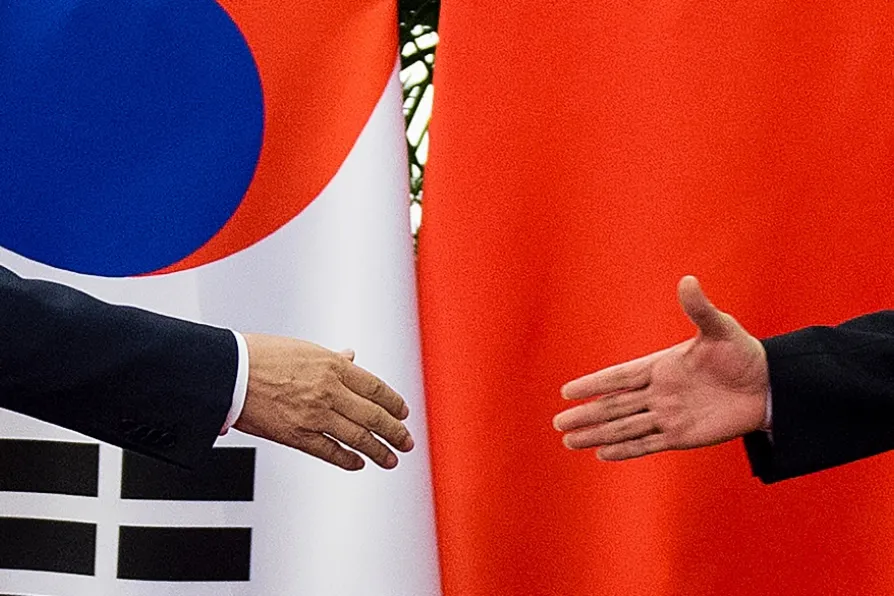Xi and Moon meet to repair rift over US anti-missile system

 South Korean President Moon Jae In, left, shake hands with China's Premier Li Keqiang at the Great Hall of the People in Beijing
South Korean President Moon Jae In, left, shake hands with China's Premier Li Keqiang at the Great Hall of the People in Beijing
PRESIDENT Xi Jinping welcomed his South Korean counterpart Moon Jae In to Beijing yesterday for a visit dedicated to improving ties that have nosedived since Seoul’s deployment of a US anti-missile system.
Greeting President Moon in the Great Hall of the People in the heart of the capital, Mr Xi said that bilateral relations had suffered setbacks “for reasons known to all.
“I hope and believe that your visit will be an important opportunity to improve relations as we seek to find ways to carve a better path based on mutual respect and trust,” he added.
More from this author


















